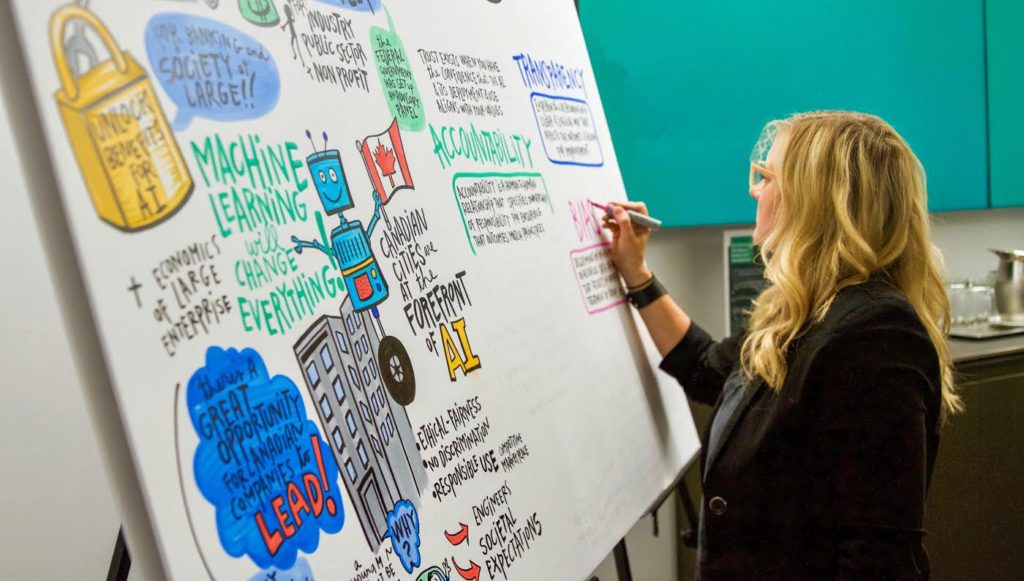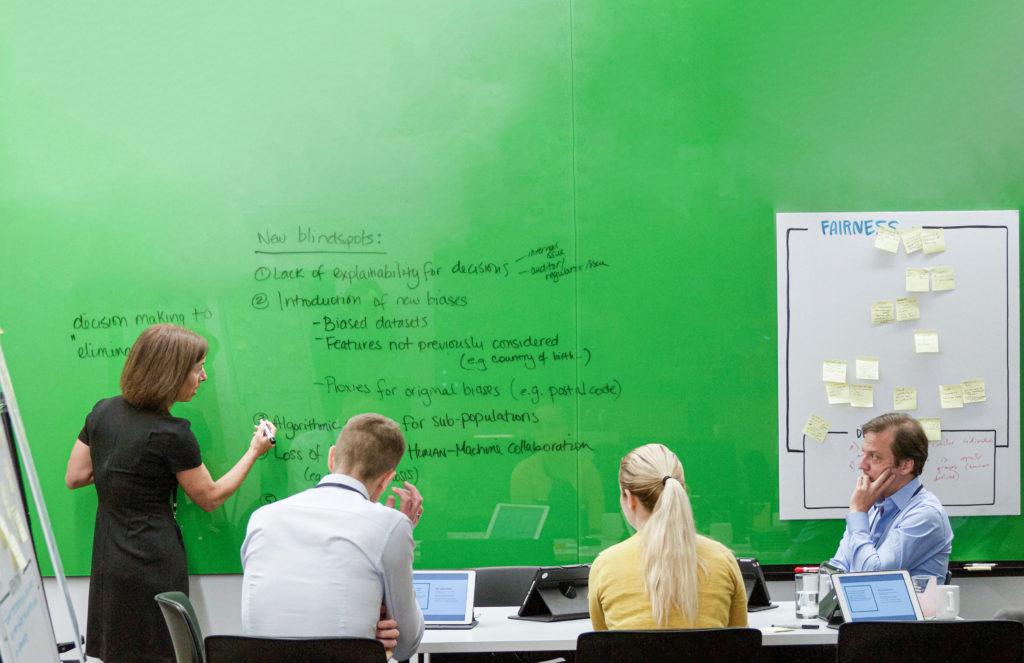
Michael Rhodes, Group Head, Innovation, Technology and Shared Services, TD
Trust is a delicate thing. It can take a lifetime to build and can disappear in an instant.
We know the relationship Canadians have with their financial institutions is rooted in trust. Canadians look to their bank to be there for them, to safeguard their families’ financial future, and offer them the right advice and guidance that can help them be more financially confident.
As we continue to innovate and create new experiences for our customers, preserving that trust is paramount.
At TD, we believe that innovation – like banking – has the power to enrich lives. And there is perhaps no technological innovation with the potential to enrich lives quite like artificial intelligence.
There’s no denying the enormous potential benefits of AI, both for our industry and across society.
However, for this future to be realized, it is critical that the financial industry map the evolution and adoption of AI in a responsible way.
To help us identify that path, we released a new report called, Responsible AI in Financial Services.

Our report reveals that while consumers are eager for more relevant and highly personal experiences, they have questions about the risks inherent in any form of new technology. As an industry, it is imperative that we continue to identify these types of concerns and seek a path forward that is both effective and responsible.
The report was truly a collaborative effort and features perspectives from more than a dozen AI experts who participated in a roundtable in order to better understand both the opportunities and the risks associated with AI in financial services. It also includes the opinions of more than 1,000 Canadians who we surveyed to understand their use of, and trust in, AI.
The goal of the report is to initiate discussions about how we can use AI to not just deliver on its potential to enrich lives at scale, but to do so in a way that protects the trust that our customers place in us.
Ultimately, the question is: How do we use AI responsibly?
At TD, we see the promise of AI to bring us closer to our customers – to help us get to know them better, and to create personalized, intelligent experiences that can start to anticipate their needs.
When 72 percent of the Canadians we surveyed say they are comfortable with AI if it means they will receive better services, and 81 percent say they are willing to try new forms of technology, we know we have a tremendous opportunity.
But at the same time, when a majority also say they are concerned they don’t understand the technology well enough to know the risks, we know we also have a responsibility to educate.
At TD, we feel that we have a leadership role to play in determining the next steps. We feel the best way to do that is to work with our industry partners to continue exploring any potential gaps in accountability and transparency in AI models, and dig deeper into questions remaining about the role of bias in an AI-first world.

It’s clear from our findings that businesses and individuals alike lack clarity about what AI is, and what it can and can’t do. That’s why we’re initiating this conversation.
As we embrace the power of AI, it is important to continue reflecting on and analyzing the barriers – big or small – to its adoption and acceptance.
The long-term, successful deployment of groundbreaking innovation requires transparency, accountability, fairness and trust – values that are ingrained into every facet of our business, and ones that we share with Canadians.
We need to find ways to embed these values into the underlying code of AI – to promote the positive outcomes innovation can deliver and avoid the pitfalls and address the challenges; progress with purpose – not just progress at scale.
It’s up to all of us to come together and ensure we put a truly Canadian stamp on how AI will change our economy and our lives for the better.
Source: TD
MobileSyrup may earn a commission from purchases made via our links, which helps fund the journalism we provide free on our website. These links do not influence our editorial content. Support us here.


